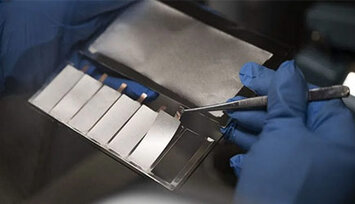From 4 to 5 June 2025, Data Centre World, Germany's leading event for the data centre community, will take place at Messe Frankfurt.
We look forward…
In our shop you will find batteries and battery packs of all types, sizes and capacities.

Register in only 2 seconds
We set trends and develop and sell the most modern battery storage systems for many applications.

Register in only 2 seconds
Our comprehensive range can be used in a variety of industries and application areas.

Register in only 2 seconds
For over 35 years, Battery-Kutter has stood for the production and distribution of batteries, accumulators and battery packs of all kinds.

Register in only 2 seconds
Our core competence is consulting. We always focus on finding the optimum solution for our customers.

Register in only 2 seconds
Contact

From 4 to 5 June 2025, Data Centre World, Germany's leading event for the data centre community, will take place at Messe Frankfurt.
We look forward…

CSEM is investing in a drying room for the development and prototyping of innovative batteries that is unique in Switzerland. This new infrastructure…

We are expanding the distribution of our SSB Battery and SUN Battery brands in South-East Europe with the opening of a branch in Athens. We are very…

Thanks to the positive results, we have now been awarded the ‘Hamburg's Best Employer 2025’ seal of approval for the second time.

We are very pleased to inform you that you can now access our new website and our new webshop. Enjoy many advantages, because not only has the design…

At Battery-Kutter, people take centre stage. That is why it is particularly important to us to always support our employees. In the following video,…

The EXINOS2 joint project aims to develop a new type of production system for battery cell stacks for faster battery production. The concept aims to…

Higher energy density, greater range, shorter charging times. Manufacturers and consumers have long wanted these and other features in electric cars.…

At Battery-Kutter, togetherness is very important to us. This also includes spending time together on fun activities. In March, we therefore went on a…


